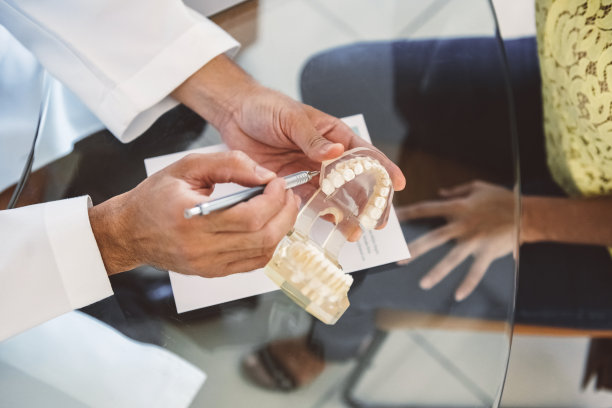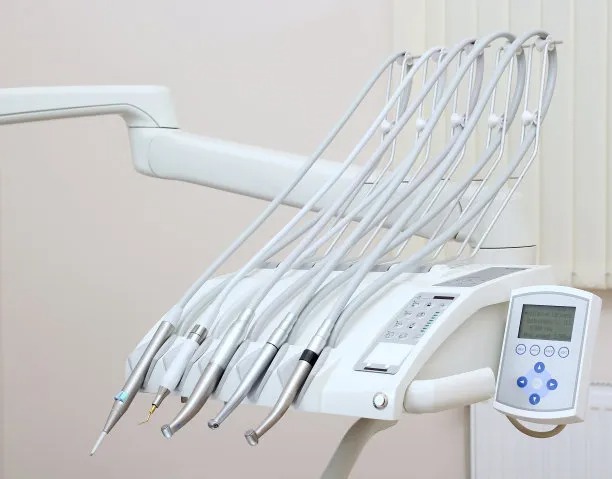Summary: Dental implant procedures can significantly enhance overall oral health and improve the quality of life for individuals suffering from tooth loss. However, the success of these procedures hinges on meticulous preparation, skilled execution, and diligent postoperative care. This article highlights four essential guidelines and precautions that patients should adhere to: selecting the right dental professional, understanding the procedure, following aftercare instructions, and lifestyle adjustments during recovery. By focusing on these areas, patients can maximize their chances of a successful dental implant experience and a swift recovery.
1. Selecting the Right Dental Professional

The initial step toward a successful dental implant procedure begins with choosing a qualified dental professional. Researching potential dentists, oral surgeons, or periodontists who specialize in implants is crucial. Look for credentials, educational background, and years of experience in performing dental implant surgeries.
Consulting with multiple practitioners can help gauge their expertise and approach to treatment. Be sure to ask about their success rates, available technology, and methods used during surgery. Additionally, consider asking for patient testimonials or reviews to gain further insight into their reputation in the field.
Ultimately, trust and comfort with the selected professional are vital. A competent and communicative dental professional will not only carry out the procedure skilfully but will also provide guidance and support throughout the entire process.
2. Understanding the Procedure
It is essential for patients to have a comprehensive understanding of the dental implant procedure. Knowing what to expect can alleviate anxiety and prepare them for the steps involved. A typical procedure includes a thorough initial examination, imaging scans, implant placement, and finally, the attachment of a crown.
During the initial examination, the dentist will assess the patients jawbone health and overall oral condition through X-rays and other imaging techniques. Understanding potential complications or additional procedures required, such as bone grafting, will prepare patients for their journey.
Open communication with the dental team is paramount. Patients should not hesitate to ask questions about anesthesia options, recovery times, and what will happen during each phase of the implant process. Clarity on these points can foster trust and ensure informed consent.
3. Following Aftercare Instructions
Postoperative care significantly impacts recovery and the long-term success of dental implants. Patients should prioritize adhering to the aftercare instructions provided by their dental professional. This typically includes guidelines on pain management, diet modifications, and practices to maintain oral hygiene.
Avoiding hard, crunchy, or spicy foods after the procedure is crucial. Instead, focus on soft foods and clear liquids to facilitate healing. Maintaining adequate hydration and a nutrient-rich diet can also bolster the body’s natural recovery processes.
Patients should remain proactive in their postoperative care; practicing gentle oral hygiene and scheduling follow-up appointments for check-ups is vital. Monitoring for any signs of infection or unusual pain is critical, and immediate contact with the dental office should occur if any concerns arise.
4. Lifestyle Adjustments During Recovery
In addition to adhering to aftercare instructions, lifestyle adjustments can significantly affect healing following a dental implant procedure. Patients should avoid smoking, as it can hinder blood flow, delay healing, and increase the risk of implant failure.
Limiting strenuous physical activity for at least a week post-surgery is essential as it can place undue stress on the healing area. Gentle activities like walking can be beneficial, but high-impact sports and heavy lifting should be postponed until the dentist gives the green light.
Maintaining regular dental check-ups and communicating any issues with the implant as they arise can be vital for success. These efforts help ensure that the implant site remains healthy and functional over the long term.
Summary:
In summary, a successful dental implant procedure is attainable with careful planning and adherence to essential guidelines and precautions. Patients should focus on selecting the right dental professional, understanding the procedure, following aftercare instructions meticulously, and making necessary lifestyle adjustments during recovery. Putting these recommendations into practice will lead to improved healing and a satisfactory long-term outcome.
This article is compiled by Vickong Dental and the content is for reference only.
Vickong Dental
Vickong Dental is a large medical group established in Hong Kong in 2008 by professors from well-known medical universities in Guangdong and Hong Kong, as well as medical doctors from key national '985' universities (including Master's supervisors and senior professors). The chain of branches brings together expert dentists with PhDs and Master's degrees from Hong Kong and Mainland China, committed to providing high-quality dental treatment.
"Vickong Dental Practices the University Motto of 'Healing and Serving Society,' with a Stable Operation for Sixteen Years. It Has Been honored with Hong Kong Enterprise Leaders's Choice,' and is a Global Trusted Implant Center for the Nobel Implant System. Recommended by Hong Kong Metro Broadcast and Guangdong Television, it Serves Customers from Over Thirty Countries and Regions, Gaining the Trust and Favor of Citizens from the Guangdong-Hong Kong-Macau Greater Bay Area and Surrounding Cities.

Thousands of customers' unanimous praise
The most recognized and highly recommended dental service by customers in the Guangdong-Hong Kong-Macau Greater Bay Area
We Ensure You Receive Detailed Care and Attention Here
Hong Kong standards, Shenzhen prices, Your Trusted English-speaking dentists

Vickong Dental Medical-Grade Instrument Disinfection Process
Vickong Dental Medical-Grade Instrument Disinfection Process

Vickong Dental Chain: A Warm and Comfortable Environment for Treatment






Appointment Hours

Q&A
Why choose Vickong Dental?
Vickong Dental practices the university motto 「Medicine to Benefit Society」, with each branch bringing together highly qualified dentists with doctoral and master’s degrees from Hong Kong and the Mainland, and has maintained seventeen years of steady operation。Recipient of 「2024 Hong Kong Enterprise Leaders Brand」, 「2025 Hong Kong Enterprise Leaders Brand」, a Nobel Biocare Global Trusted Implant Center, and a brand recommended by Metro Radio Hong Kong and Guangdong TV。
To date, we have served customers from more than thirty countries and regions,earning exceptionally high word-of-mouth recognition and trusted recommendations from residents across the Guangdong-Hong Kong-Macao Greater Bay Area and surrounding cities
We have eight major branches in Zhuhai、Shenzhen,and a consultation and service assurance center in Hong Kong,so you can book a free consultation at any time for any questions,which is very reassuring.
If I do not accept the quotation after the CT scan, will I be charged??
No! As long as the actual treatment has not started, you will not be charged any fees.
Will there be any additional charges during the treatment process?
No, there won’t be any additional charges. Before treatment begins, we will clearly explain the treatment plan and its corresponding fees. Only after the patient agrees and signs the consent form will we proceed with the dental service.
Can I pay in Hong Kong dollars?
Yes. Vickong Dental accepts payment in Hong Kong dollars. The amount will be converted based on the exchange rate of the day, and the applicable rate will be clearly communicated to you in advance.
Can I reschedule my appointment at any time?
Yes. Please contact us via **WeChat** or **WhatsApp** as early as possible, providing your original appointment time and details, along with your preferred new date and time slot for rescheduling.













